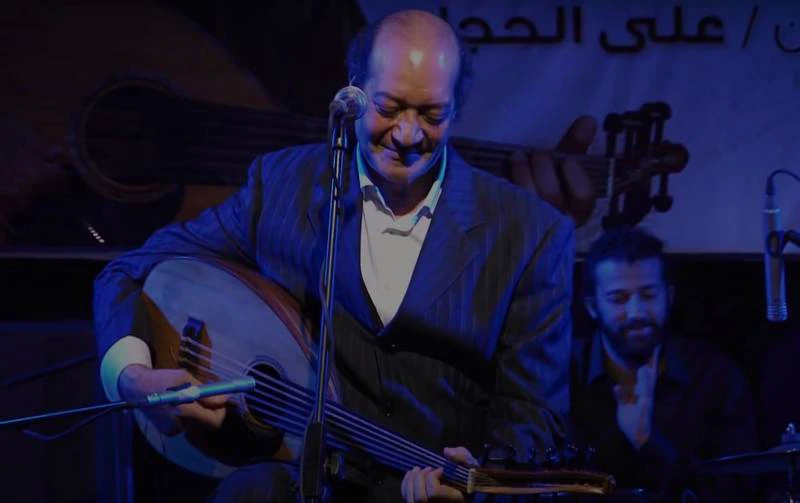Egyptian composer Ahmed El Haggar dies aged 65: 'Arabic music has lost a brilliant star'

Tributes for El Haggar were led by Egypt's Minister of Culture Ines Abdel-Dayem who praised the singer for his four-decade career.
“Arabic music has lost a brilliant star that’s distinguished by an authentic voice and a delicate sensitivity,” she said. Egyptian pop star Tamer Hosny also went online to pay his respects.
"We ask for prayers for the death of the great artist Ahmed Al-Hajjar, brother of the artist Ali El Haggar,” he said. “We extend our condolences to him and his generous family.”
It was a sentiment echoed by Syrian singer Assala Nasri. “May God have mercy on the great artist Ahmed El Haggar, and my condolences to his brother, the great professor Ali El Haggar and all his family,” she wrote.
Singer Mohamed Fouad praised the late artist’s talent and character, writing: “Sincere condolences on the death of the dear brother, the pure person and great artist Ahmed El Haggar."
Born in 1956 in the Egyptian governorate of Giza, El Haggar was raised in a musical household led by his father, the illustrious singer and composer Ibrahim El Haggar.
He followed in the footsteps of his senior by also enrolling into Cairo's Higher Institute of Arabic Music, studying the oud and piano, in addition to eastern and western music modes.
The knowledge kept him in good stead as El Haggar became an in-demand composer for Egyptian singers such as Mohamed El Helou, Medhat Saleh and Hisham Abbas.
When it came to his solo career, El Haggar found some success with tracks such as Lamlemt Khoyoot El Shams and Lahdat Wadaa.
Linking them all together were his evocative melodies rooted in the Arabic folk music tradition and orchestral flourishes partly owing to western classical.
“He made works that expressed the feelings of an entire generation,” Abdel-Dayem said. “They will remain immortal as signs in the world of modern and contemporary music.” El Haggar was buried on Wednesday after funeral prayers in Masjid Al Sayyida Nafeesah in Cairo.
